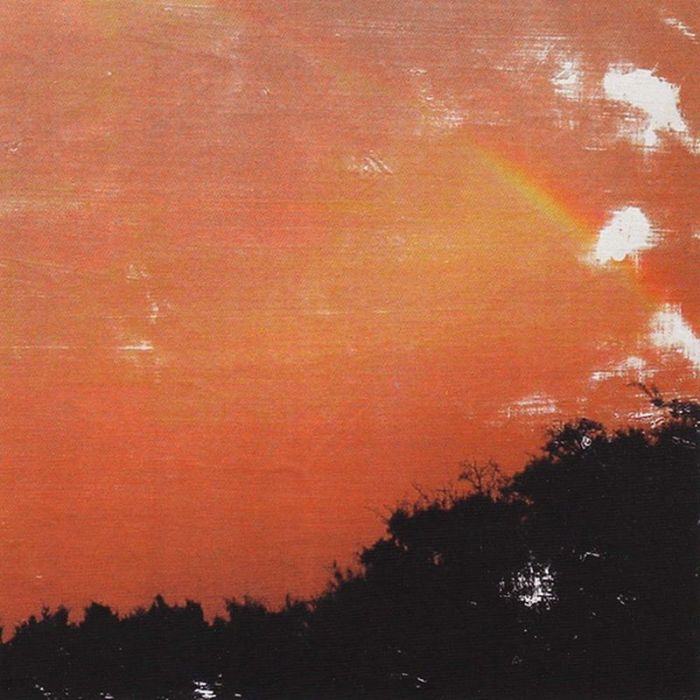
The Japanese have a saying, “mono no aware,” which roughly translates into “the sadness of things.” Coined by a scholar during Japan’s Edo period, it refers to a keen, melancholy awareness of the transience of all things, and a soft sadness at their passing. It is a sensation that one constantly experiences throughout Goldmund’s (aka Keith Kenniff) Corduroy Road, a collection of gorgeous and intimate piano recordings.
As with Linford Detweiler’s solo piano works, Corduroy Road is a decidedly lo-fi affair. These are not pristine studio masters, but rather simple, sparse songs captured with a single microphone. One hears the impact of Kenniff’s fingers on the keys, the sound of the keys as they slide past eachother, the whisper of the foot pedals, the creak of the floor when Kenniff shifts in his seat, and even the sound of Kenniff closing the piano when he’s done and walking away.
Like a good field recording, these seemingly trivial and distracting sounds have the exact opposite effect. They actually anchor these simple songs even further within a concrete world, as if carving out a niche within time and space for them. They’re not divorced from real life by the cold, artificial confines of a studio. Rather, the imperfections give Corduroy Road a stark reality, a sense of depth that only adds to the music’s nostalgic quality. As these songs near their inevitable end, one feels as if something really is passing — a singular moment that, even if one were to immediately replay the track on their stereo, will never again be recaptured.
Like most nostalgia-prone music, what you get out of the music depends on what you bring to it. If you’re the type to think about family and your childhood, then “Door of Our Home,” with its dreamily playful bridge, might cause you to search for those old shoeboxes full of photos. If you’re the type to reminisce about past loves and friendships, than the lilting “Parhelia” might bring back memories of faces you haven’t seen in ages. Or if you’re just in the mood to stare out the window for no reason other than because you simply need to, than you could do far worse than listening to Kenniff’s delicate rendition of “Marching Through Georgia” or “Methusela Tree“ ‘s stark, piercing notes.
But more often than not, these songs, as dark as they might be at times — and a song like the aptly-titled “Downward to Darkness on Extended Wings” is quite haunted indeed — curiously do a better job of crystallizing the present than taking one back through the past.
As I sit here in my office on a lazy Sunday afternoon, external sounds come drifting in through the walls: traffic from a nearby busy street; the neighbor’s child playing in the unseasonably warm weather; my wife chatting with a friend out on the porch. These songs begin weaving themselves into the fabric of these experiences in curious ways. I can’t easily tell where the muted songs end and “reality” begins, resulting in a waking dreamlike state where otherwise mundane experiences take on a whole new level of substance and emotional power. I stare out the window while listening to these songs, and the twilight is even more piercing than before, shadows are deeper and richer, and the subtlest interplay between light and shadow has a level of detail that it would never have otherwise.
But everything fades, and the sadness of that thought becomes as real and powerful and meaningful as any joy or satisfaction experienced within those moments. It’s not a sadness that should cause one despair, though. Rather, it should empower and encourage us to not take these otherwise trivial moments for granted. We need realize how amazing and unique they are, or else our lives are poorer and shallower.
Of course, you could listen to Corduroy Road while moping around being all gloomy and such. And truth be told, the first time I listened to this album, I was in such a state… and I nearly started sobbing right there at my desk. But doing so would greatly diminish the beauty contained within each one of the shimmering, fading notes that Kenniff eases from his piano. Notes which become something far more than just a simple recording of some guy plunking away on the piano, and become something for which a word like “nostalgic” ends up falling quite short.